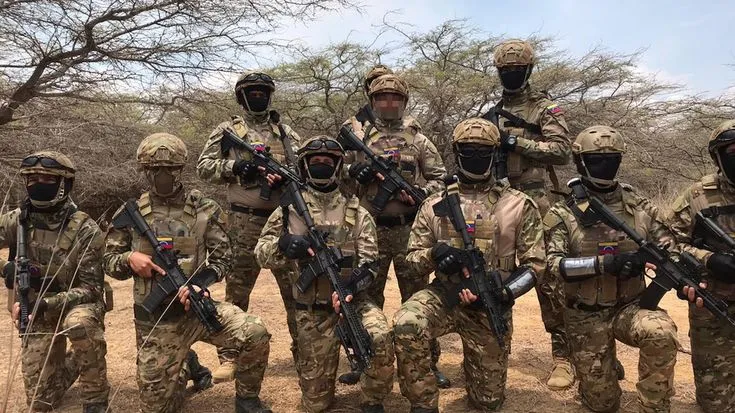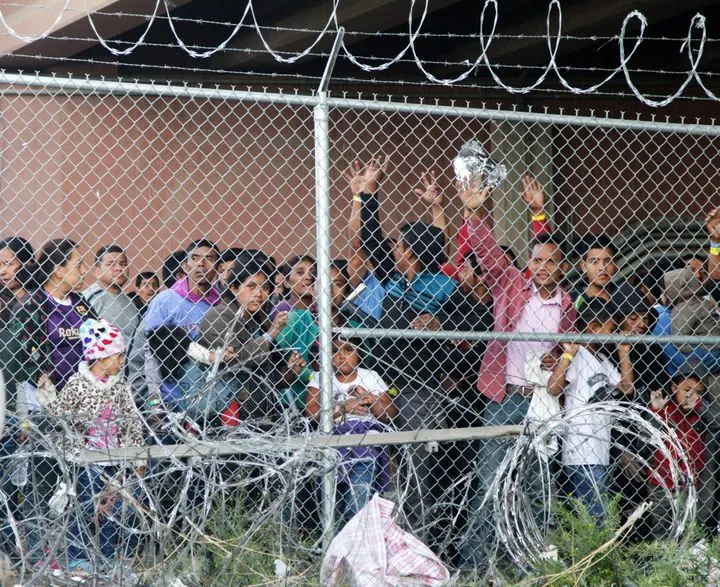Key Contemporary Concepts: Hybrid War and Lawfare
An analysis of hybrid warfare and lawfare as strategic tools used in modern conflicts, focusing on their implications in global politics.

Illustration representing hybrid war and lawfare strategies
Key Contemporary Concepts: Hybrid War and Lawfare
These two strategies are central to the threats posed by São Paulo and Puebla movements.
Hybrid war, a term originating in U.S. military doctrine and gaining prominence during Russia’s invasion of Ukraine, merges conventional warfare with irregular tactics. It incorporates terrorism, propaganda, and organized crime to destabilize states.
Guillem Colom Piella defines hybrid warfare as “a sophisticated form of conflict characteristic of the Information Age, utilizing globalization and advanced technology to blend conventional and irregular actions, terrorism, propaganda, and organized crime into a unified strategy.”
One example of hybrid warfare’s origins is Fidel Castro’s collaboration with narcotraffickers, which paved the way for Venezuela’s hybrid tactics under Chávez. After Venezuela’s contested 2004 referendum, Chávez unveiled his “New Strategic Map of the Bolivarian Revolution,” emphasizing asymmetrical warfare domestically and internationally. This included alliances with Latin American guerrillas and using media and digital tools to control narratives and electoral data.
Hybrid war strategies include:
- Public Mobilization and Narrative Control: Utilizing propaganda to foster pro-regime sentiment and undermine opposition.
- Military-Civil Integration: Training civilians for guerrilla-style defense under the guise of patriotism.
- Alliance with Organized Crime: Collaborating with groups like the FARC to secure resources and logistics.
Lawfare
The Lawfare concept, on the other hand, involves judicializing political opponents under the pretense of legality. Examples include Venezuela’s use of manipulated courts to target opposition figures and Brazil’s investigation into the corruption scandals involving Lula da Silva and others.
These tactics distort laws to criminalize political participation, undermining the rule of law and constitutional order. They legitimize authoritarian control while suppressing dissent, creating an environment where dictatorships thrive under the façade of democracy.
Hybrid War and Lawfare: Global Implications
Hybrid warfare and its derivative, Lawfare, exemplify how manipulation of laws and narratives is used to consolidate power, destabilize opposition, and foster authoritarianism. These practices have found fertile ground in the modern geopolitical landscape, characterized by the following factors:
1. Cultural Deconstruction:
- Zygmunt Bauman's concept of “liquid modernity” describes a cultural paradigm shift where stability and clear structures are replaced by fluidity and ambiguity. This environment facilitates manipulation of social and political narratives.
- Antonio Gramsci’s theories further explain how cultural hegemony can be dismantled to promote authoritarian ideologies. Hybrid war exploits this cultural fragility by undermining established values and norms.
2. Media and Technology:
- The digital revolution, powered by algorithms, has created a new battleground where narratives are shaped instantaneously. Social media amplifies propaganda, fake news, and disinformation, blurring the line between truth and lies.
- This dynamic has led to a virtual world where perception often outweighs reality, making it easier for authoritarian regimes to justify their actions under false pretenses.
3. Historical Precedents:
- Hybrid conflicts have deep historical roots. The attack on the Twin Towers in 2001 demonstrated the effectiveness of decentralized, asymmetric tactics in disrupting global power structures.
- Similarly, targeted media campaigns, such as those exposing abuse scandals within the Catholic Church, highlight how carefully curated narratives can erode institutional credibility.
4. Lawfare as a Judicial Weapon:
- Lawfare enables the use of judicial systems to persecute political opponents. It blurs the distinction between legality and illegality, weaponizing legal frameworks for political gain.
- In Venezuela, this practice has been institutionalized, with courts systematically used to suppress opposition. Similarly, cases against leaders like Cristina Fernández de Kirchner in Argentina and Rafael Correa in Ecuador illustrate how judicial processes can be manipulated.
Case Studies: Judicialization of Politics
Latin America:
- Rafael Correa (Ecuador), Cristina Fernández de Kirchner (Argentina), and Lula da Silva (Brazil) were all targeted by legal investigations framed as anti-corruption efforts but suspected of political motives.
- In Bolivia, Evo Morales faced accusations related to extrajudicial killings, while in Venezuela, courts have been used to entrench Nicolás Maduro’s regime.
United States and Europe:
- Donald Trump and Marine Le Pen represent cases where judicial inquiries intersect with political ambitions. Trump was accused of undermining electoral integrity, while Le Pen faced charges of misusing European Parliament funds.
- In Spain, leaders like Pedro Sánchez faced criticism for granting controversial amnesties to political allies under the guise of judicial reform.
Guatemala:
- Recently elected leaders Bernardo Arévalo de León and Karin Larisa Herrera have been judicially targeted in an apparent attempt to undermine their electoral victory.
Conclusion: The Emerging Dictatorships of the 21st Century
Lawfare and hybrid warfare signal a shift toward authoritarianism masked as democracy. These tactics enable regimes to maintain power by:
- Co-opting judicial systems to suppress dissent.
- Utilizing propaganda to manipulate public opinion.
- Exploiting cultural and technological shifts to entrench control.
These practices illustrate a global crisis in governance, where the balance between democracy, the rule of law, and human rights is eroding. Hybrid warfare and Lawfare are not just tools.
Related Articles

Judicial Deceit and the Judicialization of Political Participation
An analysis of hybrid warfare and Lawfare in the 21st century, focusing on judicial manipulation and political deceit.

Key Contemporary Concepts: Hybrid War and Lawfare
An analysis of hybrid warfare and lawfare as strategic tools used in modern conflicts, focusing on their implications in global politics.

The Venezuelan Precedent in Hybrid and Lawfare Strategies
An exploration of Venezuela's role in pioneering hybrid warfare and Lawfare, shaping authoritarian tactics across the globe.


